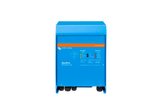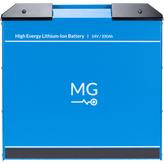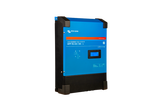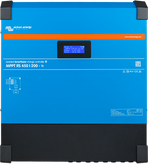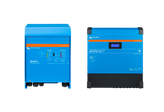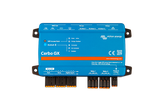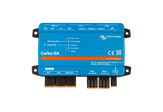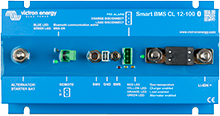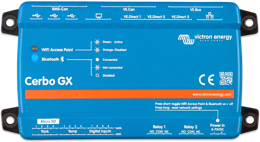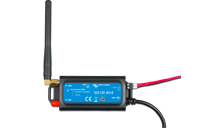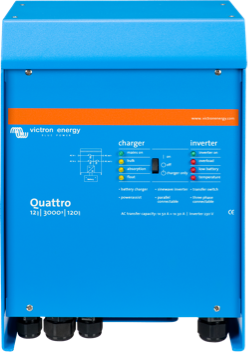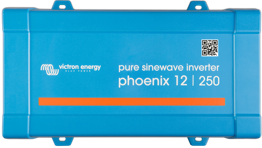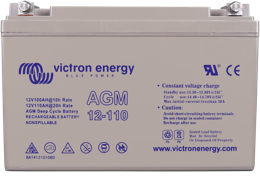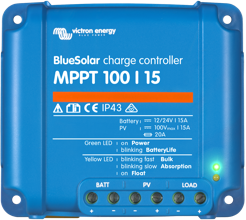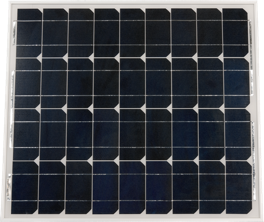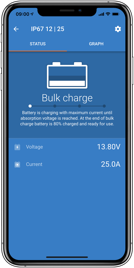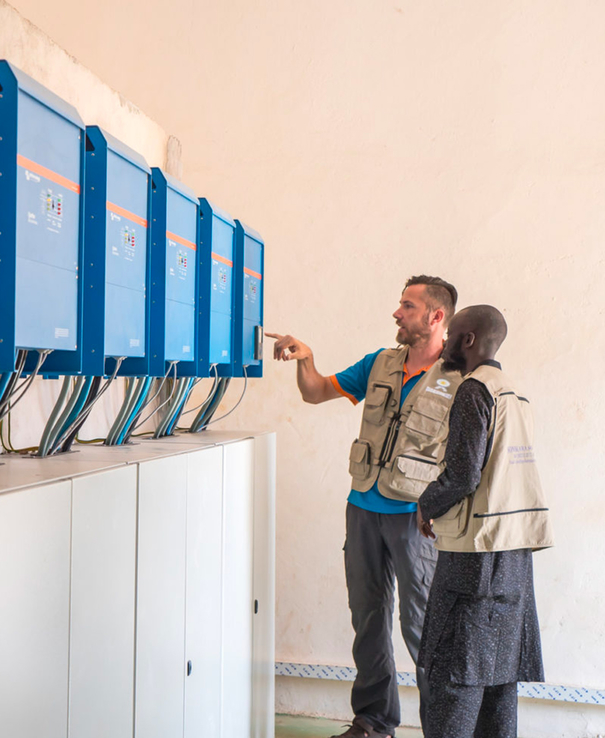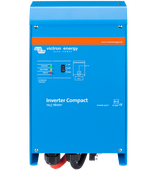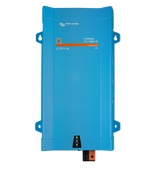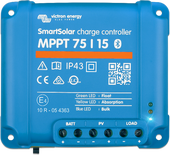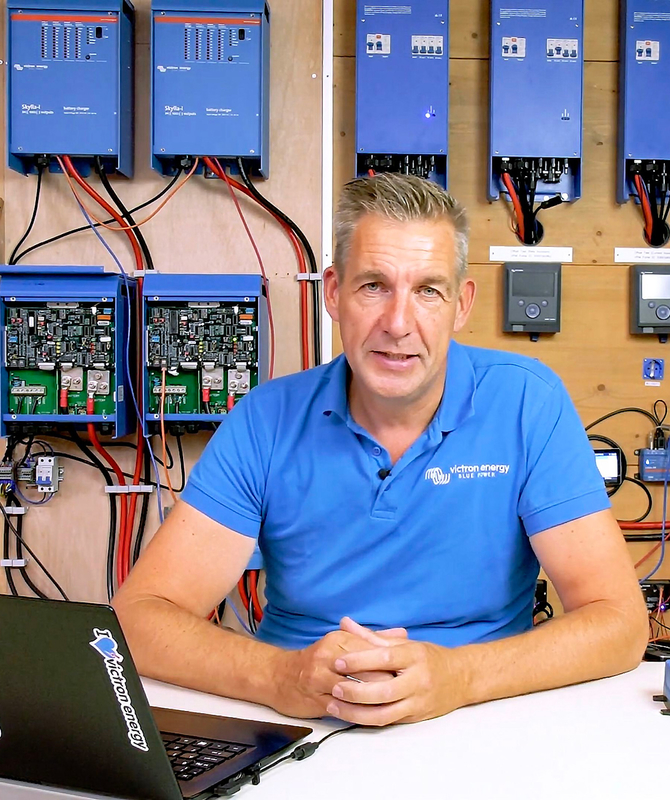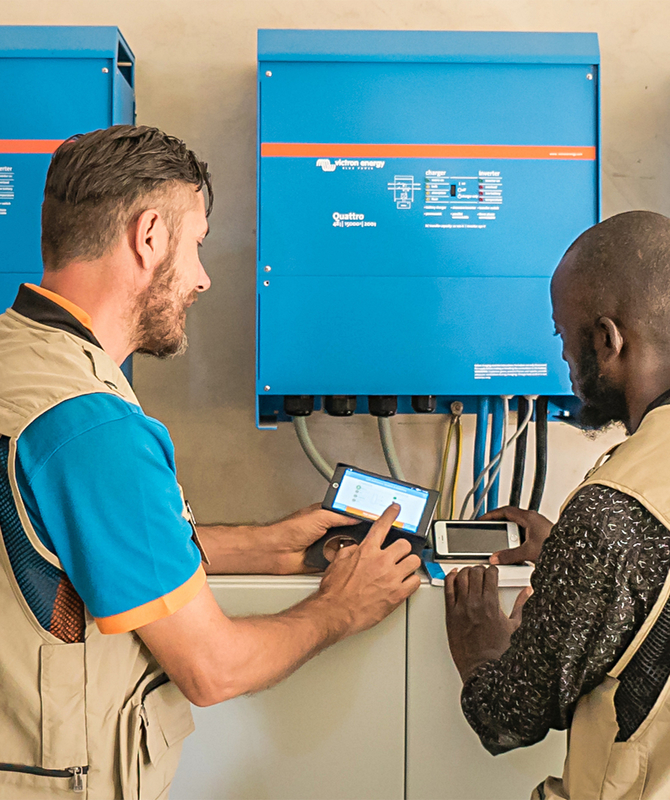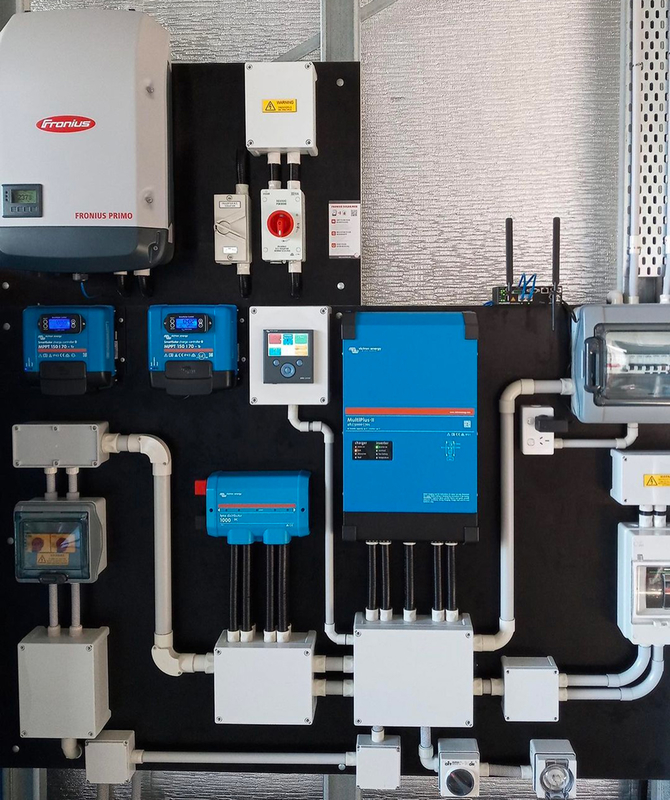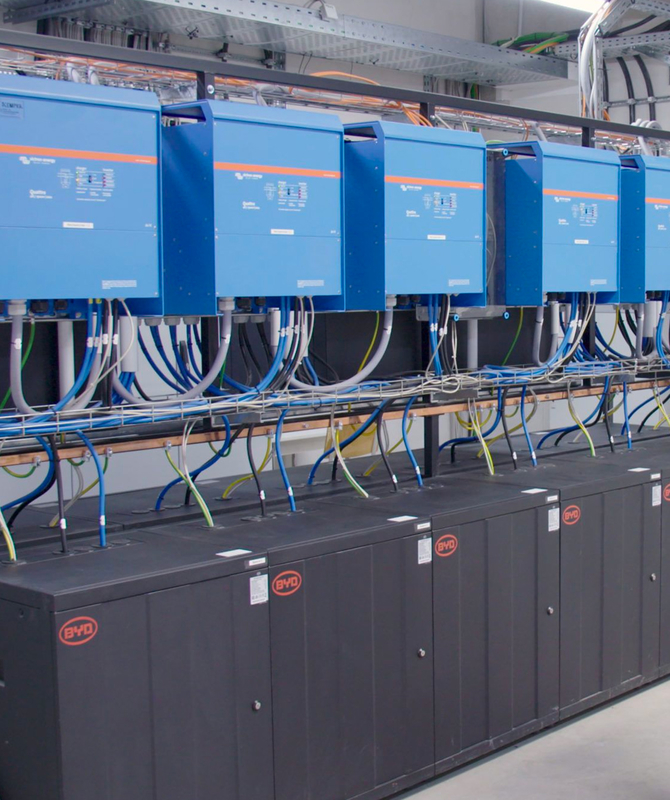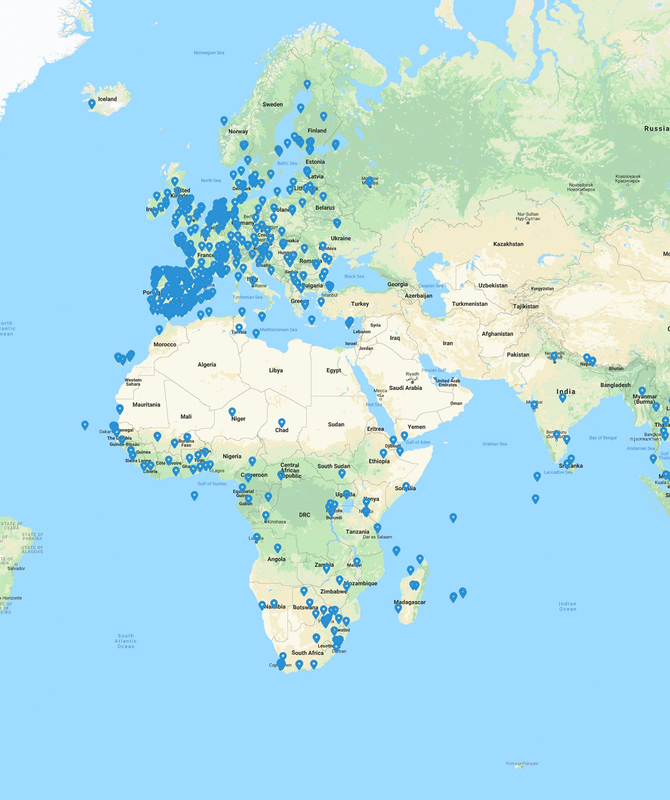Cerbo GX & GX Touch 50
The Victron Energy Cerbo GX is the communication-centre of your systems installation, allowing you to always have perfect control from wherever you are and maximises its performance. The optional GX Touch 50 is a companion to the Cerbo GX, it’s five inch touch screen display gives an instant overview of your system and allows you to adjust settings in the blink of an eye.
Instantly monitor the battery state of charge, power consumption, power harvest from PV, generator, and mains, or check tank levels and temperature measurements. Easily control the shore power input current limit, (auto)start/stop generator(s) or even set quiet periods to avoid starting the generator in the middle of the night. Change any setting to optimise the system, follow up on alerts, perform diagnostic checks and resolve challenges remotely with the free Victron Remote Management (VRM) portal.
The Cerbo GX is an easy to use visual system and turns any power challenge into an effortless experience. Simply connect through our Victron Remote Management (VRM) portal, or access directly, using the optional GX Touch 50 screen, a Multi Functional Display or our VictronConnect app thanks to its added Bluetooth capability.
To successfully integrate a third-party battery bank, a GX-device such as the Cerbo GX is mandatory to manage charge and discharge limits, to exchange error codes and state of charge information with the wider Victron system.
See our GX-devices
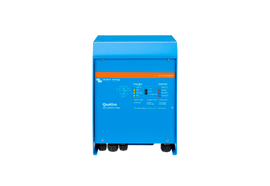 01Our extremely resilient Quattro 48/15000/200-100/100 inverter/charger is the heart of many global off-grid installations. It combines an inverter and charger in one enclosure and has 2 AC inputs. Based on a 48V battery bank, nine 15kVA Quattro’s are installed in Three-phase and can continuously provide 135kVA with a peak power up to 225kW, more than enough to power most industrial appliances at the same time.
01Our extremely resilient Quattro 48/15000/200-100/100 inverter/charger is the heart of many global off-grid installations. It combines an inverter and charger in one enclosure and has 2 AC inputs. Based on a 48V battery bank, nine 15kVA Quattro’s are installed in Three-phase and can continuously provide 135kVA with a peak power up to 225kW, more than enough to power most industrial appliances at the same time.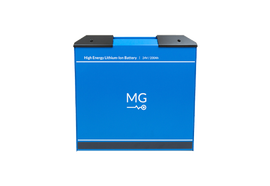 02To get through the night and cloudy moments, an astonishing 150kWh of battery storage is provided by twenty MG HE series battery modules, managed by five MG Master LV safety and control units of the battery system.
02To get through the night and cloudy moments, an astonishing 150kWh of battery storage is provided by twenty MG HE series battery modules, managed by five MG Master LV safety and control units of the battery system.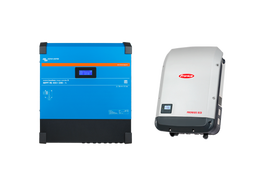 03Where possible, large power consumers such as a water maker, laundry and swimming pool equipment are planned to run during daytime only and can directly run on solar energy. Air conditioning is typically running at night while kitchen appliances typically start in the early morning before the sun is up, significantly driving up the specifications of energy storage. Therefore an efficient and robust setup was created by adding a ‘hybrid’ AC-coupled and DC-coupled solar array.
03Where possible, large power consumers such as a water maker, laundry and swimming pool equipment are planned to run during daytime only and can directly run on solar energy. Air conditioning is typically running at night while kitchen appliances typically start in the early morning before the sun is up, significantly driving up the specifications of energy storage. Therefore an efficient and robust setup was created by adding a ‘hybrid’ AC-coupled and DC-coupled solar array.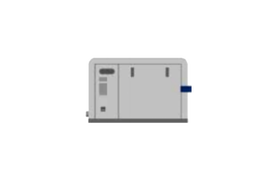 04A 160kVA generator connected to the AC inputs of the Quattro’s provides the system with backup power, so the Lithium batteries can be fast charged by the chargers of the Quattro in case they reach critical levels due to an incidental low solar yield.
04A 160kVA generator connected to the AC inputs of the Quattro’s provides the system with backup power, so the Lithium batteries can be fast charged by the chargers of the Quattro in case they reach critical levels due to an incidental low solar yield.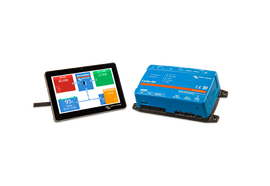 05To have perfect control over this installation through the Victron Remote Monitoring system, a Cerbo GX and its GX Touch companion were added. The resorts’ management now has full insight and control over the power situation. A Victron authorised installer is proactively involved from remote, and will act based on several notifications and alarms set to prevent system underperforming or failing.
05To have perfect control over this installation through the Victron Remote Monitoring system, a Cerbo GX and its GX Touch companion were added. The resorts’ management now has full insight and control over the power situation. A Victron authorised installer is proactively involved from remote, and will act based on several notifications and alarms set to prevent system underperforming or failing.
